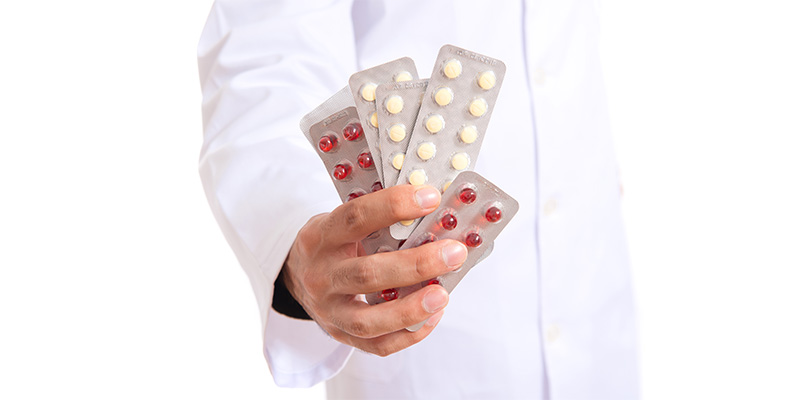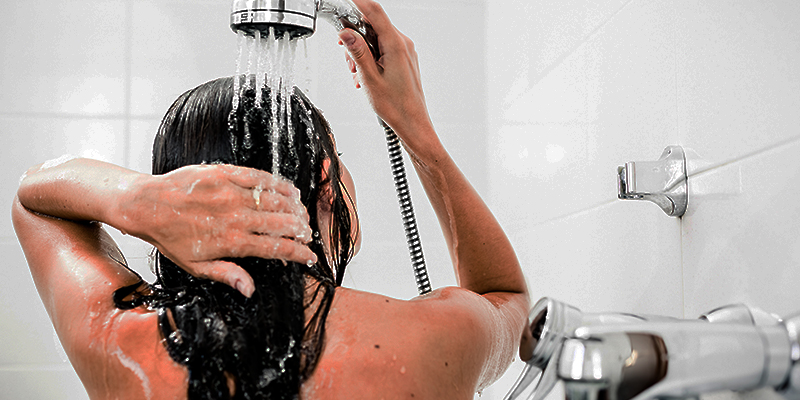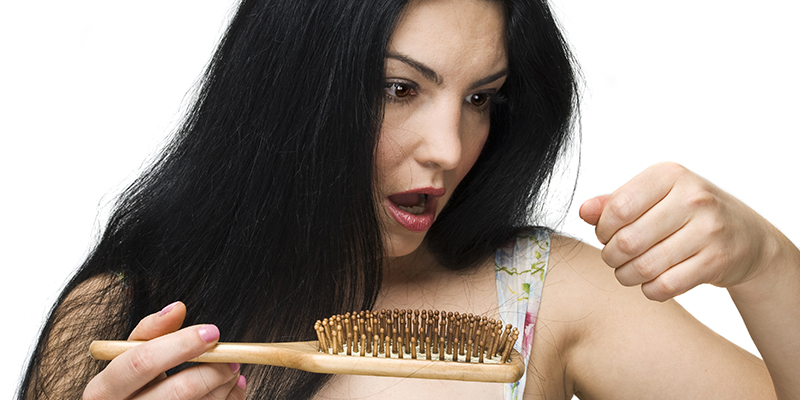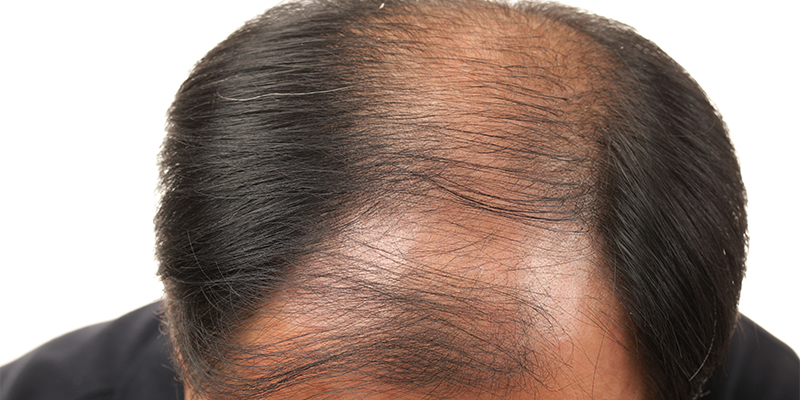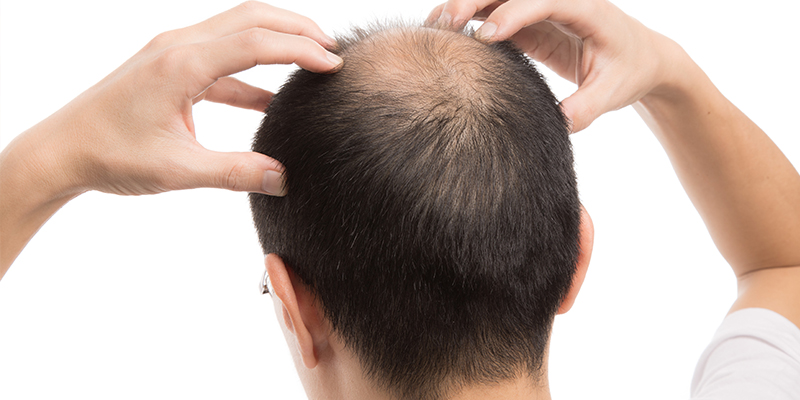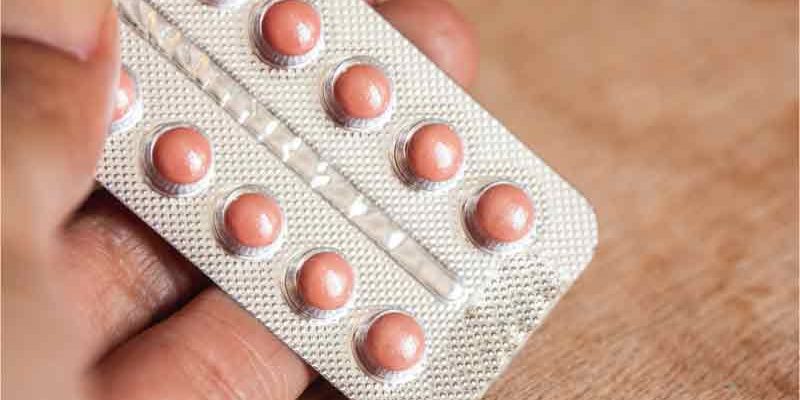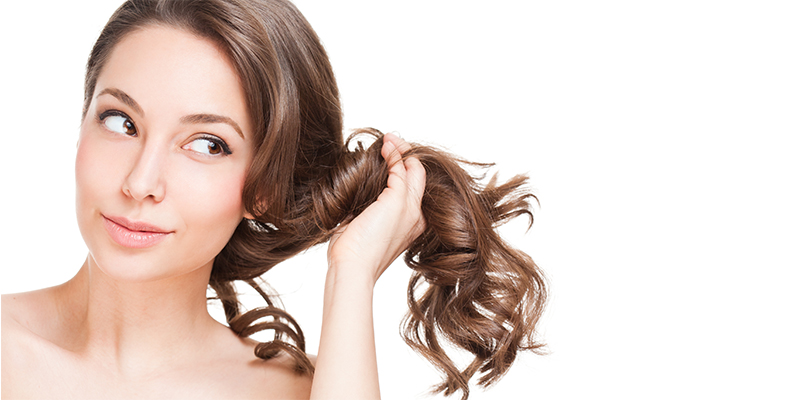Creatine Hair Loss – Causes, Side Effects & Treatment
It is common for people who work out, to take supplements to enhance their stamina, strength, and over-all performance. Creatine is one such organic acid which occurs naturally in our body, and also its supplements are available to enhance its concentration in the body. The major purpose of this creatine is to recycle adenosine triphosphate which are the energy pockets of muscular tissues and brain tissues.
Though there are factual evidences that suggest creatine is also responsible to raise DHT levels in the body which trigger hair loss. Let us understand the link between creatine and hair loss.
What Is Creatine?
Creatine is a natural component that is present in muscles and brain in the form of amino acid, also it is produced by our kidneys, pancreas, and liver. Food such as sea food and red meat are rich in creatine, and they can be synthetically made and are available in the form of supplements in the market as well. It is a popularly used supplement to increase muscle strength, improve sprint performance, and enhance brain function, largely by weightlifters and athletes.
It creates phosphocreatine in the body, which is known to create instant energy by drawing high-energy phosphate to the muscles.
So, how does creatine work? The creatine consumed is converted in phosphocreatine by your body, and is stored in your muscles, and works as a readily available energy. Thus, it is mostly used by athletes to improve their performance and increase muscle strength and mass. In fact, topical creatine is used for treating ageing related issues.
Can Creatine Cause Hair Loss?
There are evidences that prove that people observe significant hair loss/thinning after few months of consumption of creatine.
And, the central reason of hair loss being increase in the levels of DHT. Regular intake of creatine, causes 5-alpha reductase enzyme to convert testosterone into DHT. And, excess of androgenic hormones being present in the body results in drastic hair loss.
Although, DHT levels automatically increase with the increase in work-out, and creatine is known to enhance the body’s stamina and ability to workout, though medical research suggests that creatine causes hair loss, though there is no concrete scientific proof for this theory.
Also Read: What are the Causes Of Hair Loss In Men & Women
Side Effects Of Creatine
Apart from increasing the DHT levels in your body, creatine has some other side effects too –
• Lowers your heat tolerance and hydration status – Which can lead to muscle cramping and diarrhoea.
• Electrolyte imbalance – That can cause heavy sweating, increased thirst, restlessness, drowsiness, fatigue, nausea, muscle pain, light headedness, and a dry mouth.
• Kidney and liver problems – Such as interstitial nephritis. Also, if you have fatty liver, there are chances that on consumption of creatine you may have an allergic reaction, which could result in breathlessness, hives, or swelling of face/lips/tongue.
• Sudden and unusual weight gain.
Who All Are At Risk?
Creatine is a naturally existing molecule in the body. Further, it is used by athletes and body builders as a supplement to increase muscle strength and enhance overall performance.
Consuming creatine in high doses can result in several side effects, and hair loss being one of them, especially if you have a family history of baldness.
So, anyone who uses creatine monohydrate as a supplement for their fitness, is a probable candidate for hair loss, as with higher amount of creatine in the body, more testosterone are going to be converted into DHT (especially if you have a family history of hair loss).
Also Read: What Are The Hormones That Cause Hair Loss?
Can You Regrow The Hair Lost Due To Creatine?
Creatine is known to increase testosterone, which eventually are converted into DHT by the body and therefore they are likely to aggravate hair loss condition, as DHT causes the follicles to shrink in size.
If the hair loss that you are observing is due to creatine, then shedding would probably start after two months from your initial consumption of this supplement.
Considering, that your hair loss/ hair thinning is due to intake of creatine, then after you stop taking it your hair would grow back. But, if creatine acted as a catalyst to your genetic condition, then your hair may not grow back without a regrowth treatment.
It is important to understand the reason for your hair loss, as one factor might be contributing to other, making your condition worse. For example, if you have a genetic condition to lose your hair, then consumption of these supplements will result in acceleration of hair loss.
Treatment For Creatine Related Hair Loss
There are plenty of reports that imply that creatine causes baldness because of increase in DHT levels. High androgenic hormones in the body cause miniaturization of hair follicles and negatively impact the life cycle of the hair follicles.
There are several drugs that help in balancing DHT levels in the body and hence control the hair loss triggered by it, these are commonly known 5α-reductase inhibitors. These drugs increase the blood circulation on the scalp and curb the production of DHT. But, it is important to consult a dermatologist before consuming any medicine, as everyone may react to these medicines differently. The only solution is to counteract the symptoms caused by increase in DHT levels and to increase blood flow, by hindering production of DHT.
The following are the treatments available in the market, although, ensure that the choice of treatment is based on your scalp condition and medication history –
- Platelet-rich plasma – It is a very effective and safe treatment that helps you in promoting hair growth, naturally. This is a non-invasive and therapeutic treatment that includes drawing your own blood, separating growth rich blood platelets from it by putting it through centrifuge machine, and infusing these activated blood platelets into your scalp by using an injection to do so. These platelets stimulate the hair follicles and help in regrowth and restoration of hair. As blood platelets have the ability of cell regeneration and hence PRP helps in stimulating new hair growth.
Don’t Lose Your Hair Over Gains! Watch Now to Regrow with PRP!
Also Read: PRP Vs Other Treatments For Hair Fall – Which is better?
- Hair transplantation – It is a permanent solution for hair loss and hair thinning due to creatine. Here thin strips or grafts from hair rich area of your scalp are removed and then tiny parts of these grafts are implanted in the affected area. This triggers hair growth in the scanty hair regions.
- Minoxidil – A 2% or 5% of this solution is capable of lengthening the anagen phase and increasing the blood supply to hair follicles. This topical treatment is known to be very effective but it shows results only after four months from the first application. It is approved by USFDA for its effectiveness in treating hair thinning and hair fall.
- Finasteride – It is an oral medication and is known to be a 5-alpha reductase type 2 inhibitor. It is approved by USFDA for hair loss treatment only in men, and tests prove that it drastically diminishes signs of androgenetic alopecia and stimulates regrowth of hair. This medicine should be indefinitely continued, as discontinuation can have its repercussions.
- Biotin – Also known as Vitmain H, is responsible for healthy hair, skin and nails. Biotin supplements have proven to be the best DHT blockers for hair regrowth.
Omega-3 fatty acids, omega-6 fatty acids, and antioxidants are also known to show the ability to promote hair growth, but, check with your dermatologist before considering any supplements for hair regrowth.
Medically, it is proven that creatine is responsible of increasing the dihydrotestosterone (DHT) levels in your body, which causes hair thinning/ hair loss and receding hair line. And though there are several solutions for hair loss, it is important to consult a dermatologist to understand the cause of your hair loss, as the factors that influence hair loss are like a mesh and are closely interlinked. Thus, you need to understand what you are up against, to fight hair loss.




